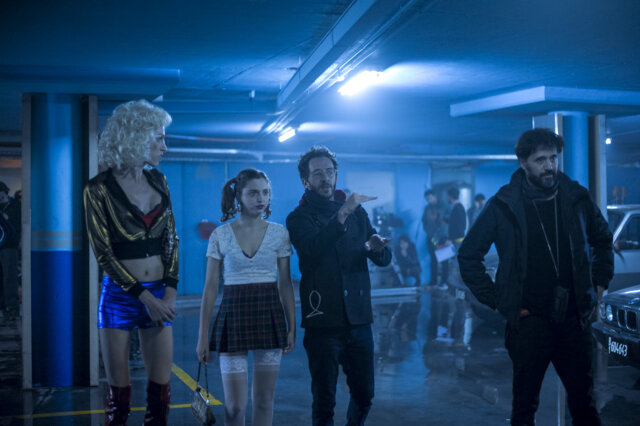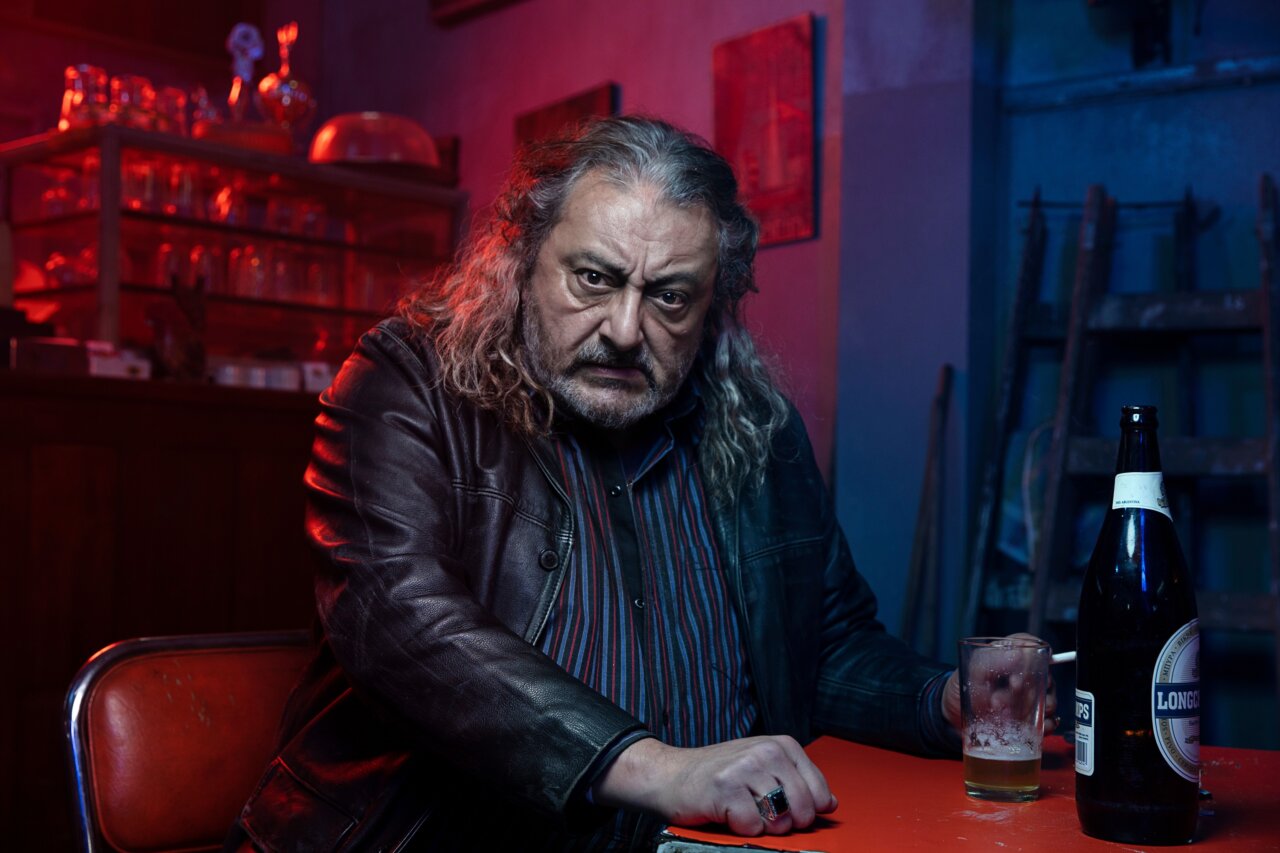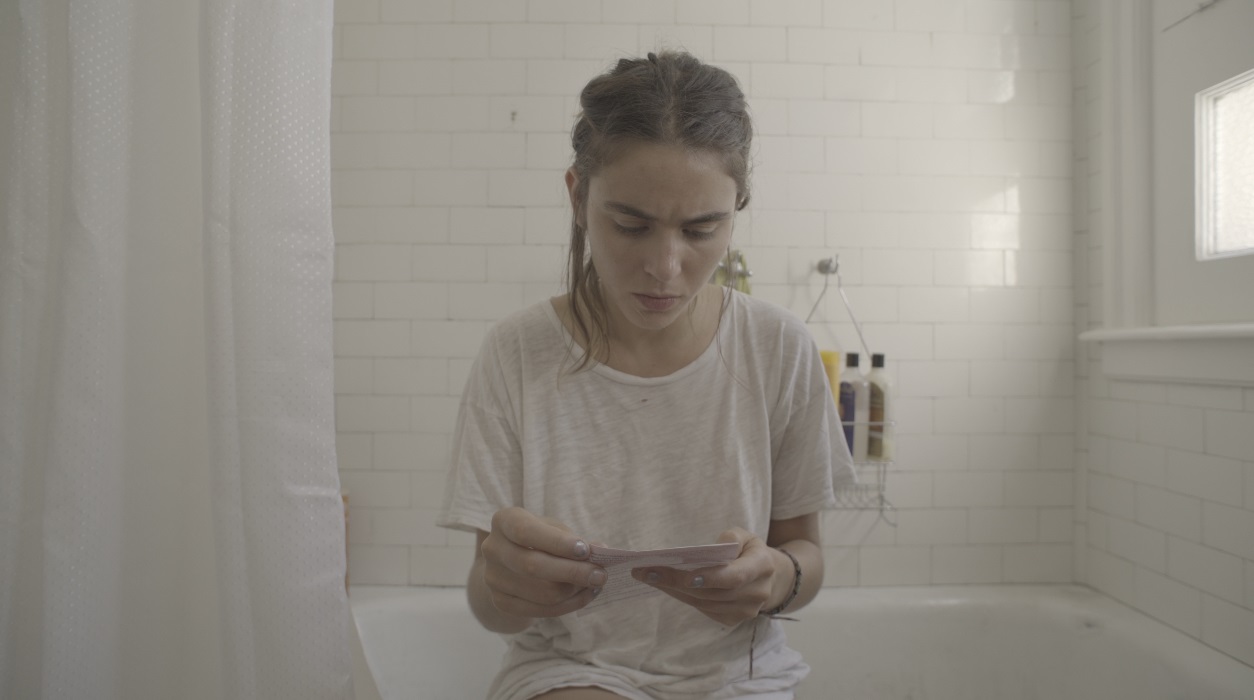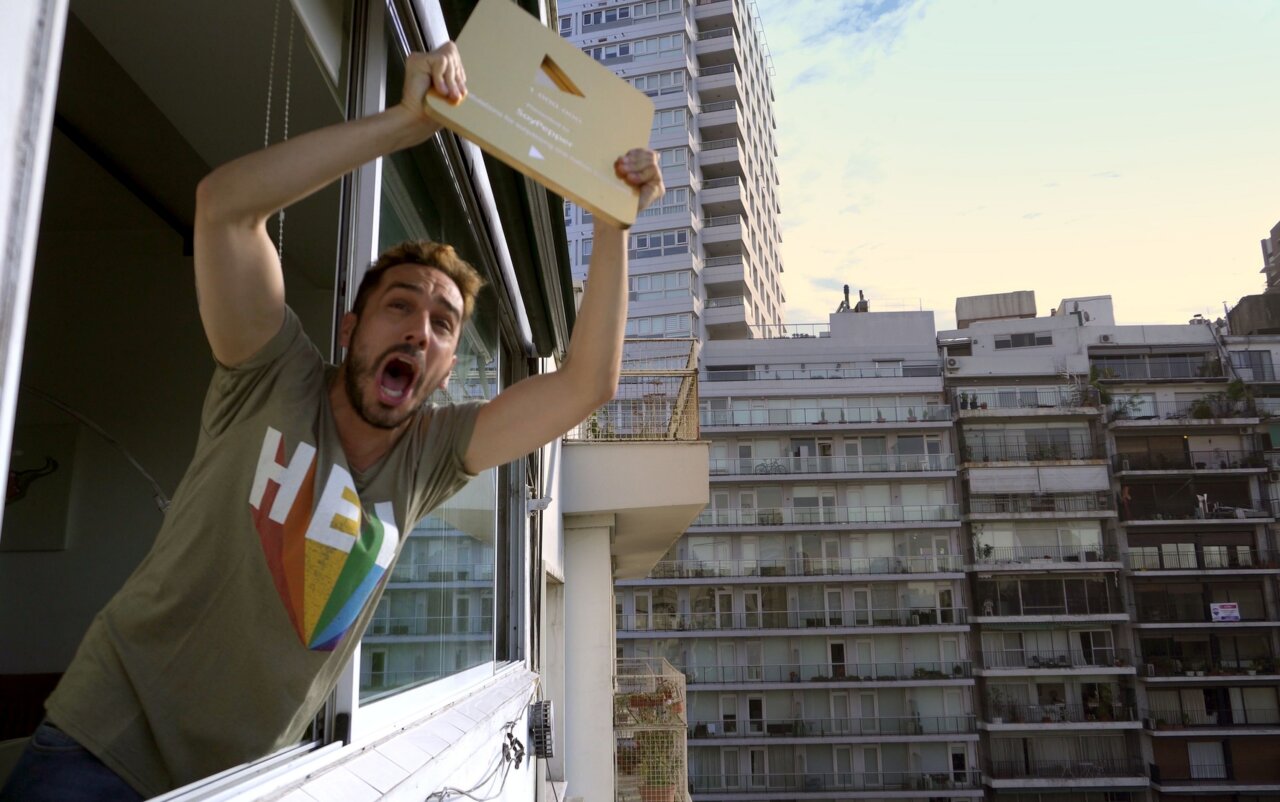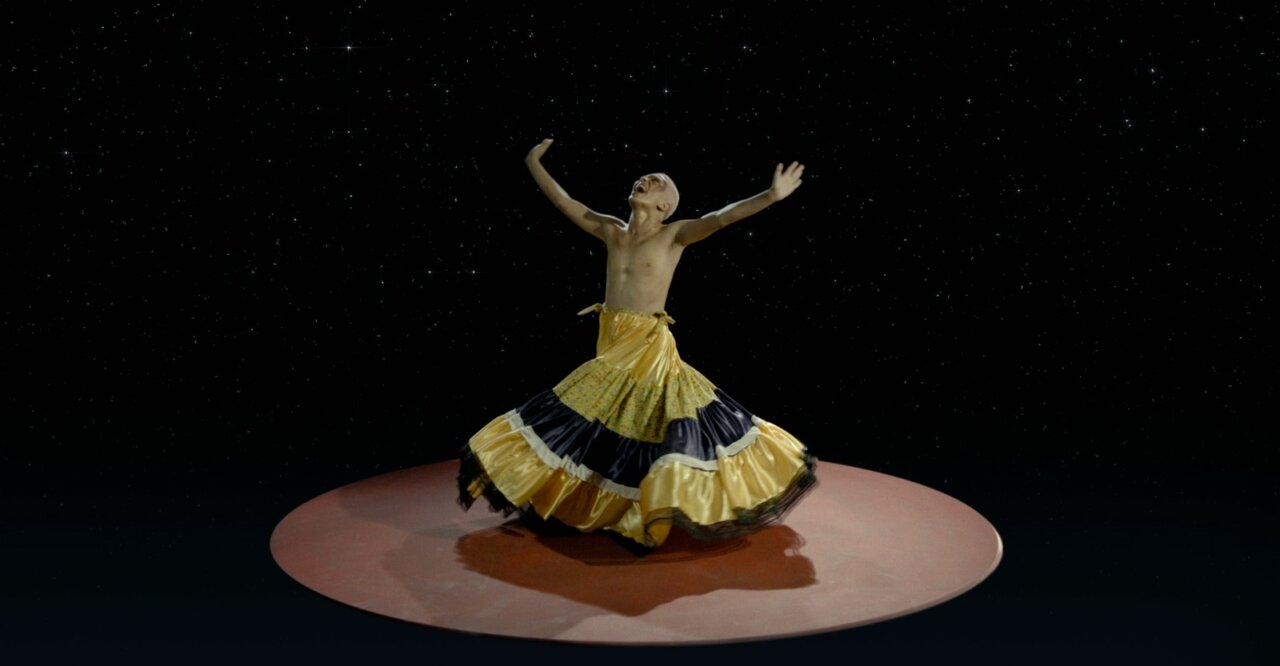A deep dive into the world of toxic masculinity and its deadly consequences is at the heart of HBO Latin America’s furious Entre Hombres (Amongst Men). Based on the bestselling book of Germán Maggiori the mini-series follows its protagonists into a web of nearly casual violence and all-encompassing corruption – brought visually stunningly to life by director Pablo Fendrik, who series fans already know from his marvelous work with El Jardín de Bronce (The Bronze Garden). Seriencamp’s artistic director Gerhard Maier talked with Pablo Fendrik about his work on Entre Hombres, the mini-series that recently premiered on HBO Max streaming platform in Latin America.
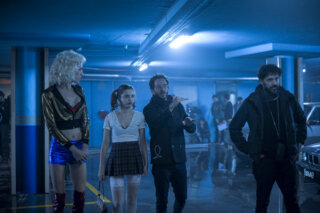

Pablo Fendrik:Oh well, I would say that it's a limited four episode series about a very specific time and place in Buenos Aires, Argentina in 1996 and there's a bunch of very corrupted and toxic men in this little universe and the only way to, you know, solve their problems and their conflicts is through violence. They don't know another language other than violence and ultraviolence. And the only way we found to tell the story is through quite a dark bleak sense of humor.
Do you think that this dark and humorous side is needed to make ENTRE HOMBRES more palatable, to make it easier to digest for us as an audience?

Pablo Fendrik: Yeah, definitely. Not only that, but it's also easier for us to produce it and to shoot it. That black humorous tone was already in the novel, in the original book, so we expanded it and made it louder, but it was already there. But we left out the more aggressive and not so funny stuff that also happens there.
The novel "Entre Hombres" by Germán Maggiori is quite a bestseller in Latin America from what I read. I unfortunately didn't have the chance to read it, but how is it for you to work with a book as source material? Is it easier because you have certain images that are already there, for which you’d have to find your own language or is it sometimes more difficult because you feel you're already set in certain moods? How do you approach that kind of work?

Pablo Fendrik: There was a part of me that immediately connected with the material. There was something I knew from the beginning that it was right for me to do. I was 24, 23 back in 1996. And I remember very well the time and the places and the way the characters speak and the way they behave in the book, it struck me immediately: “Oh, I know these guys, I know the way they speak!” It's very specific. It's not that people in Buenos Aires speak like that or even in the outskirts. It's not a usual language, almost a dialect from the underbelly of the criminal world. And since I never saw a series or a film that uses that language, I said okay, that's something for me to chew and to work with.
When I was reading the book for the second time, I had the vision of what I wanted to do and it was related with the films I saw at the time. I used to watch lots of films in theaters back in the 90s, like two or three a day sometimes, and I had a lot of memories from that time. So I started to take that influence in order to put together a certain concept for the series. It took me a few days, but once I got it and defined it in my mind, it was pretty fluid and it was all about expanding and making it grow.
I find it interesting that you mentioned this language and those ideas of the movies that you watched back then and connected with as you approached the series. Is there a difference for you between working with something that's meant for the cinema and something that's meant for maybe a TV screen? Do you approach it differently, or is it for you the same DNA and your language always expresses itself a certain way?

Pablo Fendrik: I would love to say that I try everything in the same way, but you can't. It's very difficult, it's a very different industry, it has its own rules. It was a very lucky case and a very lucky experience, they gave me a lot of creative freedom to adapt the book and then to develop it into this final product. So during the pre-production and the production it started to feel more and more like a film, like a four-hour film. But it’s still a different animal.
Four or five years ago we screened The bronze gardenhere at Seriencamp in the cinema because we thought that it would look really great on the big screen and when we watched the new series with the programming team we also got a big projector to be able to see it on the big screen. Do you think there is a new kind of medium developing, because you have these influences from film but still you have other modes of distributing, of people watching it and interacting with it and suddenly you have these long movies – mini-series – that go in a different direction.

Pablo Fendrik: It's a new media space with a lot of potential and it always depends on the project and the people involved. If you're lucky enough to have a strong project and it’s been taken care of by talented and visionary people, you can actually make great things. You can find a space to be even less constricted than in the movie market, because you still have to constrict yourself to a 1,5-2 hour duration length. When you're working on a series of 4-8 episodes you don't have that limitation anymore. You have different limitations. But sometimes you find yourself in a very privileged place where you can have the best of both worlds.
And that’s obvioulsy the case with ENTRE HOMBRES?

Pablo Fendrik: Yeah! But I do recognize that I was very lucky and I was privileged because I keep on working on series and I couldn't have that again yet.
What I find so interesting is the way you open up this world and you throw us into this toxic world of hyper masculinity and this violence. Do you think there's a danger of people watching this or not seeing the difficulties in it? For example I have friends that think that Walter White in BREAKING BAD is a hero, that what he does is really great. They don't like that he dies in the end and they don't see him as a villain. Do you think there's a danger in there and how would you react to that?

Pablo Fendrik: No, I don't see danger actually. I like it to be more complex and sophisticated than that division of villains or good guys and heroes, eventually. When shooting the series, I always had in mind this idea of “uncomfort” – to make audiences uncomfortable with their own way of enjoying the thing. If you're watching one of these very bleak but very funny scenes and you are laughing – but at the same time you are horrified and you ask yourself: “Why am I laughing? Why is this funny to me?” That's something I'm interested in.That you ask yourself those questions while you watch it, and the morning after you watched and the week after you watched it. If the series comes back to you a week or a month later, I'm a happy director. I'm not interested in this very simplistic division, I'm much more interested in leaving a mark in your head and giving you a lot to do as an audience.
Like creating this ambiguity that lives on long after you finished the series.

Pablo Fendrik: Yeah. I really rather stay in that team, yeah. I don't want to be complacent. I don't really like to be involved in projects that are like a soft massage for your head that you take after a long day in your office. There's a lot of people doing that, I don't want to be a part of that market.
Do you think it’s becoming easier to create those kind of stories or is it becoming harder or is it just like it was before?

Pablo Fendrik: No, it's not getting any easier. I don't know how it's in Europe now, but in this region – in Latin America – the platforms are pursuing that piece of the market that open television left orphan and in order to capture the attention they are reproducing in a way the kind of product that open TV used to have. So they are aiming really low in terms of interest and complexity and in terms of defying the audience a little bit. They're very complacent: “Oh yes, this is this little pink cake, sweet and beautiful. It's already pretty chewy. You don't have to chew it that much. So here it is for you, on this silver plate. Please have it!” And so they are very much into producing soap operas that they call series.
But on the other side of the spectrum there's still this multi-niche necessity that has to be filled as well. So there's still room to produce some stuff that’s different and doesn't have to be complacent. But you have to be more proactive in terms of generating and producing this.
So you think that your series might be a door opener or it might be an exception?

Pablo Fendrik: I would be very happy if in the near future something else happens because this exists. But what I'm seeing all around is that it's getting harder. The things that are being green lighted all around me, on this continent, are going in a completely different direction.
It's very interesting that you say this, because it's similar to what's happening here in Europe or in Germany: This boom for new content has created this hyperproduction that everybody is producing series, but it hasn't increased the quota of the ratio of really great series.

Pablo Fendrik: Of course, it's getting harder and harder. There's this new paradigm of infinite content. In this vast number of new series, we are lucky enough to have things that we like. Every now and then, two or three times a year at least, you see something: “Oh yes look at that, look at this amazing thing, that German, French, American, Colombian or Brazilian people made and then there's still glimpses of varying things happening.
When you look at what's happening or being produced in your home country right now, is there something that you feel excited about? Or do you think there's a voice forming or a certain kind of perspective that’s interesting to follow? Because we have noticed that compared to short form content from other parts of the world, web series from Argentina have a very high quality and a very distinct flavor. So do you think this is being reproduced in series, or does it go into cinema?

Pablo Fendrik: It's a very weird moment to try to find that, pin that down. Because film production has been stopped here for a couple of years. Very little films being produced due to the political situation with the Institute of Cinema and the pandemic. So that was a perfect storm for the film industry and what I see in this crossover of filmmakers coming into this platform content, directing and producing, is too atomized. It's too diverse to see like a shaped or defined voice from our culture. I don't see it.
What I see is individuals fighting into their own adaptation, their way into this crossover. And it's still, I think, too much dictated by the corporations and this corporate mentality of producing something for the masses and it's more determining, than the possibilities of individuals, who've actually expressed themselves over this market imposition.
So it feels like lost time a little bit, like you say with this, with the forced breaks and the power of the market?

Pablo Fendrik: No! No, it's a transition, it’s a challenge for us. It is a very interesting, evolutionary moment, because you always come out stronger, when this kind of crisis happens. We know a lot about that as Argentinians in crisis. So we know that we face this thing and at the end of it we'll learn a lot, we will be stronger, we’ll have a new toolkit to work with.
